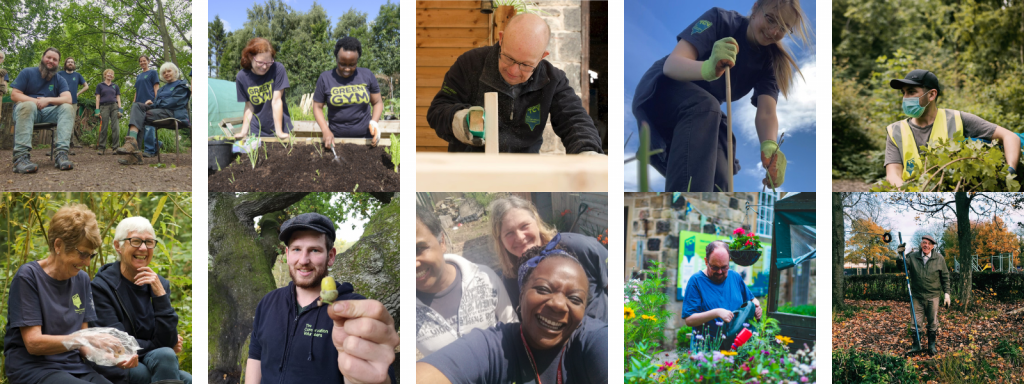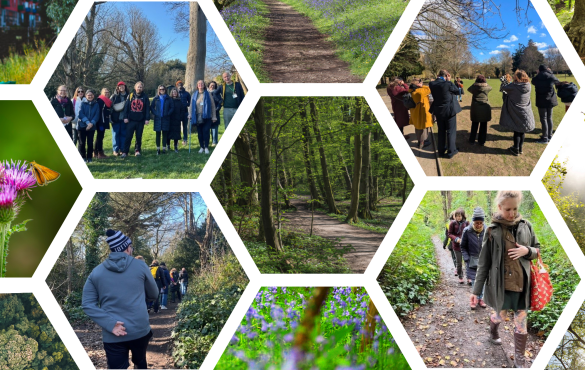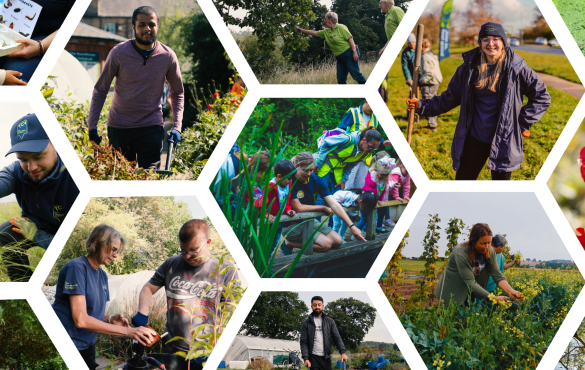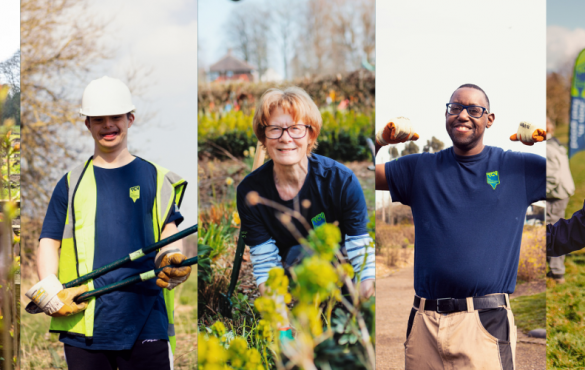Don’t let loneliness overwhelm you; take the first step towards a more fulfilling and connected life.
Loneliness is a universal experience that affects people of all ages, backgrounds, and circumstances. It can be a deeply distressing emotion, impacting our mental and physical well-being. In this blog post, we will explore the most commonly asked questions when it comes to loneliness. We look at the causes of loneliness, shed light on its profound impact, and introduce an effective solution that can alleviate feelings of isolation – volunteering with The Conservation Volunteers (TCV).
Loneliness does not discriminate
Loneliness is a common human experience that can affect anyone, regardless of age, gender, or background. It is the feeling of being disconnected from others or lacking meaningful social relationships. Loneliness can have negative impacts on one’s mental and physical health, such as increased stress, depression, anxiety, and lower immunity. Therefore, it is important to understand the causes and consequences of loneliness, and how to cope with it in healthy ways.
Although it is often associated with older people, this is not always the case. Research has found that almost 10% of people aged 16 to 24 were ‘always or often’ lonely – 3 times higher than people aged 65 and over.
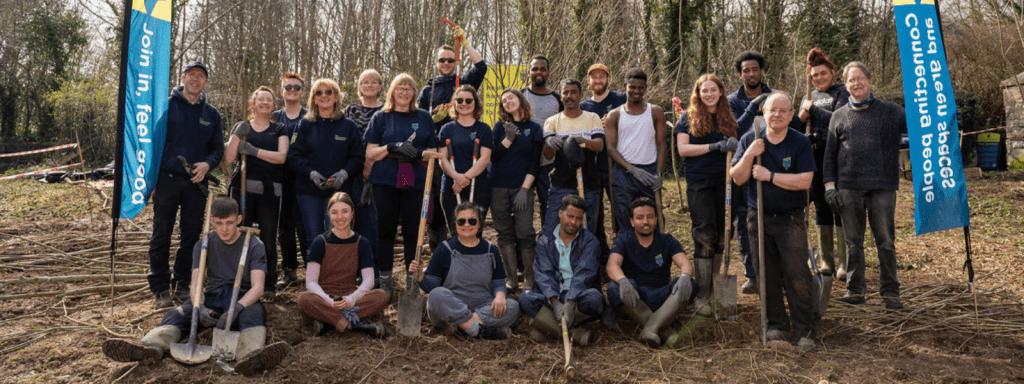
What is the main cause of loneliness?
Loneliness can stem from various factors, such as:
- Social isolation: When individuals lack meaningful connections or interactions with others, they can feel isolated and lonely.
- Relocation or life changes: Moving to a new area, starting university, or experiencing major life transitions can disrupt social networks and contribute to loneliness.
- Loss of a loved one: Grief and bereavement can of course intensify feelings of loneliness as individuals adjust to the absence of someone they held dear.
- Busy modern lifestyles: Our fast-paced lives often leave little time for socialising and nurturing relationships, leading to a sense of loneliness.
This list is certainly not exhaustive, and everyone’s particular feelings of loneliness can stem from their personal circumstances and their reactions to events in their lives.
“It became clear I had found something I enjoyed, could take further and should look to the future. I’m now a third-year horticulture student. Skills I learnt volunteering came in handy at college. I knew that as nervous as I’d be starting my course, thinking back to my first day with TCV put my mind at ease. My fellow volunteers were full of encouragement.”
TCV Volunteer
__________________________________________

__________________________________________
Why is loneliness so painful?
Loneliness is more than just an unpleasant feeling; it can have significant negative effects on our well-being. Research has shown that both social isolation and loneliness are associated with increased risks of mental health problems, such as depression and anxiety, as well as physical health issues like cardiovascular diseases. Feelings of loneliness can also impact our self-esteem, confidence, and overall life satisfaction.
- People who feel that they belong less strongly to their neighbourhood reported feeling lonely more often.
- Those single or widowed were at particular risk of experiencing loneliness more often.
- Younger renters with little trust and sense of belonging to their area are at particular risk from loneliness.
Source: Office of National Statistics (ONS)
Why do I feel alone even in a crowd?
It’s important to note that sometimes individuals can still experience loneliness even when surrounded by others. This phenomenon, known as Emotional Loneliness, arises when the quality of connections is lacking. It’s not the number of people around us that matters, but the depth and meaning of our interactions. If you feel alone in a crowd, it might be an indication that your social connections need more nourishment and genuine engagement.
“I remember being nervous turning up on my first day, finding it hard to look people in the eye. However, I quickly felt at ease. The Volunteers and the Senior Project Officer made me feel welcome, they included me in conversations… I went home feeling that for the first time in a long time I stepped out of my comfort zone, and it went well. Today I consider them friends.”
TCV Volunteer
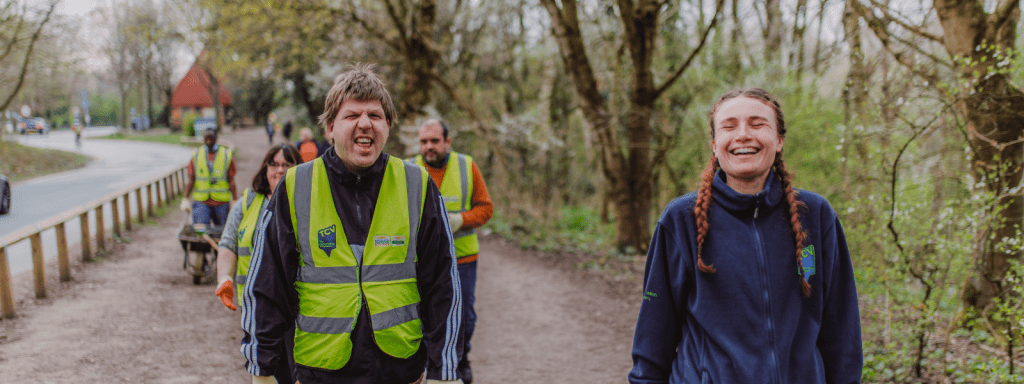
How can I stop myself from feeling lonely?
- Speak to your GP about social prescribing activities on offer in your area.
- Attend community events or classes to expand your social circle.
- Connect with individuals who share your passion for environmental conservation.
- Stay connected with family and friends through regular communication. Try and meet up even though it can sometimes feel difficult.
- Engage in teamwork and collaborative projects, fostering a sense of belonging.
- Continuously explore new interests and learn new skills, expanding your horizons.
- Make a positive impact on the environment, which boosts self-esteem and purpose.
- Access support networks and communities that understand and address the challenges of loneliness.
- Seek support from professional therapists or counsellors who can guide you through your loneliness journey.
With TCV, you can connect with others and make a positive difference with a focused task, whilst not only combating your own loneliness but that of others around you.
TCV’s Green Gym sessions are prescribed by GPs to patients to encourage them to improve their health and wellbeing, as part of social prescribing. The benefits of Green Gyms are not just physical, they help people make connections within their community and prevent people from feeling lonely and isolated.
“Social prescribing brings people together with different programmes like TCV’s Green Gym, art therapy, debt counselling, a combination of things that’s delivered in the community-by-community volunteering groups and other organisations which increases the resilience of people, makes them stronger… It says to people actually you are at the centre of your condition; you are the best person to make yourself better, but we’ll help you do that.”
Craig Lister, Associate Director Primary Prevention Lead BLMK Integrated Care Board – NHS
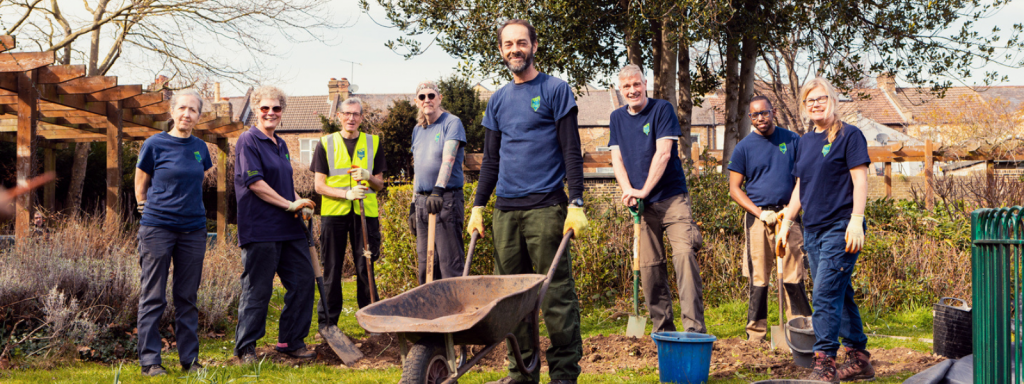
Loneliness is a prevalent and painful experience, but there are effective ways to alleviate it. Volunteering with The Conservation Volunteers offers a fantastic opportunity to connect with others, contribute to an honourable cause, and combat the isolation that loneliness brings.
Visit www.tcv.org.uk and add your postcode to explore the volunteering opportunities available in your area.
__________________________________________
Keep up to date with the latest news and activities from The Conservation Volunteers by following us on Twitter, Facebook, LinkedIn and Instagram. You can also sign up to receive our Greenzine newsletter for more ways to get involved.
